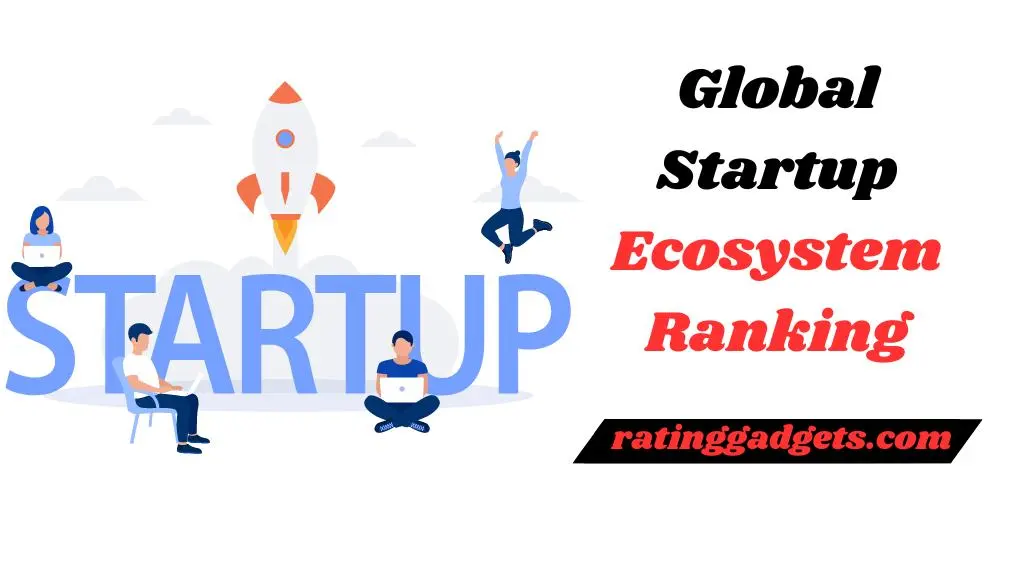
Global Startup Ecosystem Ranking
Based on several criteria, the Global Startup Ecosystem Index (GSEI) shows the startup ecosystem ranks of 1,000 cities and 100 countries. It combines data from numerous sources and partners including Crunchbase, SEMRush, and Statista using an algorithm that takes several criteria into account. The outcomes of this index are also linked with the StartupBlink Global Startup community Map, which has been constantly updated since 2013 and features important actors in every startup community.
We will show you the startup ecosystem rankings for the top 20 cities and nations in this post. But we have rankings for 100 nations and 1,000 locations as well as more comprehensive information and studies on startup ecosystems, which are available just to PRO members.
Why do we rank startup ecosystems
To better direct relocation, policy development, and investment decisions, the Global Startup Ecosystem Index seeks to expose the momentum of cities and nation's startup ecosystems. Everybody sees where the finest startup ecosystem is. But utilizing dozens of criteria, our independent study gauges startup ecosystem performance. It shows which, generally speaking as well as across several ecosystems, ecosystems overperform and underperform. We are thereby aligning the reality with the perception.
Read also: Venture capital funding plunges in the aftermath of bank failures.
Top 20 Country Startup Ecosystem Rankings
First, let's begin with the list of nations ranked among the top 20 worldwide that have managed to hold their place.
Topical stability
While the top five nations stayed the same from previous year, practically all other countries in the top twenty changed their ranks. Ranked first worldwide, the US has a striking lead—almost four times that of the UK at second. The total score difference has been reducing annually since 2020, but this year the US and the UK stayed practically exactly the same. Regarding the overall count of ranking cities, the US likewise keeps supremacy: 252, vs 257 previous year.
The United Kingdom leads Israel still
Over third placed nation, Israel, the UK keeps its advantage. Still, the overall score difference between these two nations closed from 16.6% in 2022 to 10% this year. This shift might partially represent the effects of Brexit on the capacity of the UK to draw foreign expertise. It should also be mentioned that the UK features 74 ranking cities. Although this is a drop of 4 from compared to 2022, it is still the only nation other than the US with more than 50 cities on the Index. China has 43 rated cities by contrast; Germany and Spain both have 40 listed cities.
Top Ranked Countries in their Regions: Sweden and Singapore
Sweden keeps its position for the second year as the top-ranked EU nation in terms of startup ecosystem performance after surpassing Germany's position at 5th; followed by Singapore, which made the first shift in the top 10 by surpassing Germany at 6th. Singapore, ranked best amon Asian nations in the Index, has seen a startling ten-spot change since 2020. Germany is falling for the second year on the other hand. Germany closed its difference with Sweden, even if its trend is declining. The two's overall score difference in 2022 was 11%; this year the difference is merely 4%.
Read also: Unicorn: What It Means in Investing, With Examples
Changes in Rankings: Nations 11–20
Between countries ranked 11th-20th, there are some fascinating changes taking place. After one-spot increase, Switzerland is now placed 11th worldwide, still distant from the 8th position it had held in most years since the 2017 ranking.
China is rated 12th following a further two-point drop from losing the top spot in Asia to Singapore last year. China kept the second place worldwide, above the UK, India, and Germany, however, when it comes to the Ranking by Absolute Ecosystem Power—that is, not adjusting its overall startup production to its population size—China retained the second position.
Finland ranks 13th, a one-position improvement over previous year and surpasses Estonia now placed 14th. Finland follows China. Spain similarly replaced Ireland at the fifteenth. Lithuania rated 17th as the first and only stable country in this batch; Japan achieved the largest momentum shift in the top 20 after climbing two positions to 18th, passing Denmark. Last but not least, South Korea improved one position to rank once more among the top 20 globally.
San Francisco: The Unquestionably Leading City
San Francisco is, predictably, the indisputable leader of startup ecosystems for another year. More crucially, San Francisco maintained its advantage over second-ranked New York City and the rest of the world mostly unaltered following three years of a declining score difference with lower-ranked cities. For background, San Francisco scored 3.4 times more than New York in 2020. The difference closed down to 2.5 last year; this year it is 2.4. For the foreseeable future San Francisco will keep ranking highest among all the ecosystems on Earth. This post will help you to better understand the direction of startup ecosystems.
New York: A safe second
New York, the second best ranked city, is likewise in a league of its own and has maintained second position since 2017. Having a total score 1.8 times greater than London (3rd), it keeps a scoring difference difficult to close.
Shanghai's elevation from the top
Shanghai, the second-ranked Chinese Ecosystem, stayed at 7th worldwide, but it is closer to lower-ranked ecosystems as its overall score differs significantly from the 6 top cities. In this post, we also go into the decoupling of Chinese startup ecosystems from the worldwide startup scene.
Bangalore, the top-ranked Indian ecosystem at eighth, stayed in place with a total score gain that may let it catch up with Shanghai next year. Given their large populations, which enable higher startup output, Indian and Chinese cities both have an unfair edge.


